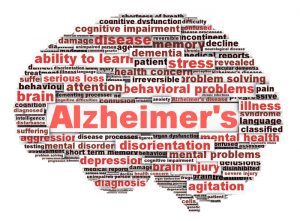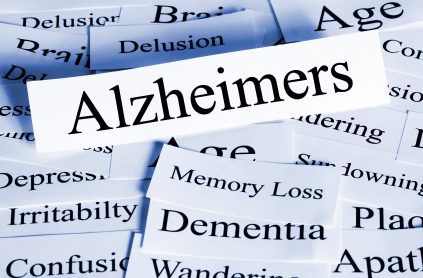Most people frequently confuse the two terms Alzheimer’s disease and dementia. Although they are interchangeable, there is a clear distinction between them. Dementia and Alzheimer’s disease are not the same. Dementia is a general term used to describe symptoms that affect memory, daily performance, and communication skills. Alzheimer’s disease is the most common type of dementia.
Alzheimer’s disease gets worse over time and affects memory, language, and thoughts.Although young people may develop Dementia and Alzheimer’s, your risk increases with age. However, neither is considered a normal part of aging.Although the symptoms of these two conditions may overlap, distinguishing these conditions is key to management and treatment.
What is Dementia?
Dementia is a syndrome, not a disease. A syndrome is a group of symptoms that are not clearly diagnosed. Dementia is a group of symptoms that affect mental cognitive tasks, such as memory and reasoning. Dementia is a general term for the possible decline of Alzheimer’s disease. It can happen due to a variety of conditions, the most common being Alzheimer’s disease.
People may have more than one dementia. This is called mixed dementia. In general, patients with mixed dementia have a variety of conditions that can lead to dementia. Diagnosis of mixed dementia can only be confirmed on examination.
As dementia progresses, it can have a large impact on the ability to act freely. This is a major cause of disability for the old, posing the emotional and financial burden on families and caregivers.
The World Health Organization says 47.2 million people worldwide have dementia.
Symptoms of Dementia:
It is easy to overlook the early symptoms of dementia which may be minor. It usually starts with simple periods of forgetfulness. People with dementia have difficulty tracking time and tend to lose their way in a familiar environment.
As dementia progresses, forgetfulness and confusion increase. It’s harder to remember names and faces. Personal care becomes a problem. Noticeable signs of dementia include repeated questioning, lack of hygiene and poor decision-making.
At the highest stage, people with dementia cannot take care of themselves. Keep track of time, remember the people and places they are familiar with and they will have to work harder. Behavioral changes and may turn into depression and anger.
Causes of Dementia:
As you grow older, you are more likely to develop dementia. It happens when some brain cells are damaged. Many conditions can cause dementia, including degenerative diseases such as Alzheimer’s disease, Parkinson’s disease, and Huntington’s disease. Each effect of dementia can lead to a different set of brain cells damaged.
Alzheimer’s disease accounts for about 50% to 70% of all dementia cases.
Other causes of dementia include:
- Infections, such as HIV
- Stroke
- Prolonged drug use
- Vascular disease
- Depression
Alzheimer’s disease:
Alzheimer’s disease is the most common form of dementia, and there are no known causes or cure for this terminal progressive brain disorder. It slowly steals the victim’s mind, causing loss of memory, confusion, impaired judgment, altered personality, disorientation and inability to communicate. Dementia usually occurs in the middle and late stages of Alzheimer’s disease.
To find out what causes dementia symptoms, you need to conduct a thorough examination with your doctor to determine exactly what caused these symptoms. Check up may include:
- Mental health assessment
- blood test
- Brain scan (in some cases only)
90% of cases often can accurately diagnose symptoms of dementia. If you know someone who appears to be losing the mental ability, interfering with daily activities and social activities, consult a physician immediately. Some medications and therapies may help control some of the symptoms, so it is important to seek help as soon as possible.
The National Institutes of Health estimate that more than 5 million people in the United States have Alzheimer’s disease. While younger people can and do grow Alzheimer’s, the symptoms usually begin after age 60.
The indications of Alzheimer’s and dementia can similar, but there can be some differences.

Dementia and Alzheimer’s Symptoms:
Both disorders can cause:
- communication impairment
- a weakening in the ability to think
- memory loss
The symptoms of Alzheimer’s contains:
- weakened judgment
- difficulty remembering recent events or conversations
- apathy
- depression
- Disorientation
- behavioral changes
- confusion
- difficulty speaking, swallowing or walking in advanced stages of the disease
Some types of dementia share some of these symptoms but include or exclude other symptoms that can help with differential diagnosis. For example, Lewy body dementia (LBD) has many of the same late symptoms as Alzheimer’s disease. However, patients with LBD are more likely to have initial symptoms such as visual hallucinations, dyskinesia, and sleep disorders.
Patients with dementia caused by Parkinson’s disease or Huntington’s disease are more experience to uncontrolled movements during the early stages of the disease.
Treatment. Dementia and Alzheimer’s:
The cure for dementia will depend on the exact cause and type of dementia, but many treatments for Dementia and Alzheimer’s will same.
Alzheimer’s treatment
- There is no cure for Alzheimer’s disease but options to help treat the symptoms of the disease include:
- medications for memory loss, which include cholinesterase
- medications for behavioral changes, such as antipsychotics
- inhibitors donepezil(Aricept) and rivastigmine (Exelon) and memantine (Namenda)
- alternative remedies that purpose to boost brain function or overall health, such as coconut oil or fish oil
- medications for depression
- medications for sleep changes
Dementia treatment
In some cases, treating the condition that causes dementia may help. Conditions most likely to respond to treatment include dementia due to:
- tumors
- drugs
- metabolic disorders
- hypoglycemia
In most cases, dementia is not irreversible. However, many forms are treatable. The right medicine can help manage dementia. Treating dementia will depend on the cause.
For example, physicians often treat dementia caused by Parkinson’s disease and LBD treated with cholinesterase inhibitors for Alzheimer’s disease.
Treatment of vascular dementia will focus on preventing further damage to the cerebral blood vessels and preventing stroke.
Patients with dementia can also benefit from support services from family health helpers and other caregivers. As the disease progresses, assisted living facilities or nursing homes may be necessary.




